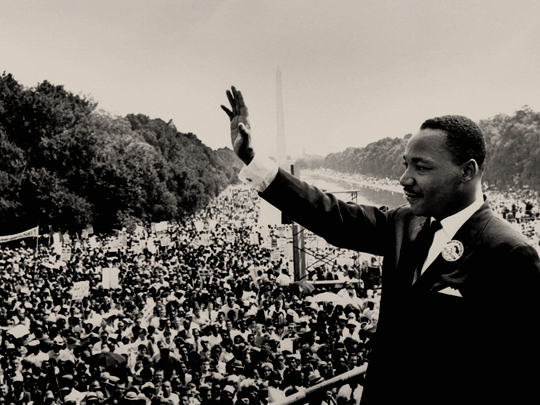Wikimedia Commons / CC-BY-SA-3.0 / GFDL
1 – Martin Luther King Jr. Delivers His “I Have A Dream Speech”
The ‘I Have a Dream’ speech was delivered by American civil rights activist Martin Luther King Jr. during the March on Washington for Jobs and Freedom on August 28, 1963.
In it, King called for an end to racism in the United States and called for civil and economic rights.
Delivered to over 250,000 civil rights supporters from the steps of the Lincoln Memorial in Washington, D.C., the speech was a defining moment of the American Civil Rights Movement.
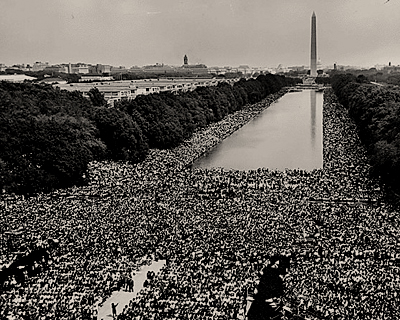
Beginning with a reference to the Emancipation Proclamation, which freed millions of slaves in 1863, King observed that: “one hundred years later, the Negro still is not free”.
King departed from his prepared text for a partly improvised finish to his speech on the theme of “I have a dream”, prompted by Mahalia Jackson’s shouts of “Tell them about the dream, Martin!”
King described his dreams of freedom and equality arising from a land of slavery and hatred.
The speech was ranked the top American speech of the 20th century in a 1999 poll of scholars of public address.
2 – John F. Kennedy is assassinated in Dallas, Texas & Lindon B. Johnson is Sworn in on Air Force One
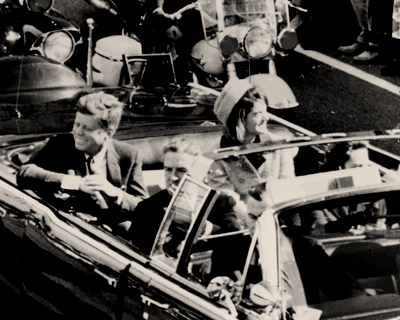
John Fitzgerald Kennedy, the 35th President of the United States, was assassinated at 12:30 p.m. Central Standard Time on Friday, November 22, 1963, in Dealey Plaza, Dallas, Texas.
Kennedy was traveling with his wife, Jacqueline, Texas Governor John Connally, and Connally’s wife, Nellie, in a presidential motorcade.
A ten-month investigation from November 1963 to September 1964 by the Warren Commission concluded that Oswald had acted alone and that Jack Ruby also acted alone when he killed Oswald before he could stand trial.
Kennedy’s death marked the fourth and most recent assassination of an American President. Vice President Lyndon B. Johnson became President upon Kennedy’s death.
Johnson took the constitutionally prescribed oath of office on board Air Force One at Dallas’s Love Field airport, before departing for Washington, D.C.
In contrast to the conclusions of the Warren Commission, the United States House Select Committee on Assassinations (HSCA) concluded in 1979 that Kennedy was “probably assassinated as a result of a conspiracy”.
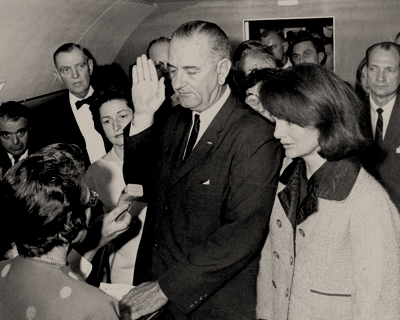
By Victor Hugo King / Wikimedia Commons / CC-BY-SA-3.0 / GFDL
The HSCA found that the original federal investigations were “seriously flawed” in respect of information-sharing and the possibility of conspiracy.
As recommended by the HSCA, the acoustic evidence indicating conspiracy was subsequently re-examined and rejected.
Kennedy’s assassination is still the subject of widespread debate and has spawned numerous conspiracy theories and alternative scenarios.
Polling in 2013 showed that 60% of Americans believe that a group of conspirators was responsible for the assassination.
3 – Jack Ruby Kills Lee Harvey Oswald – the First Live Telecast of a Murder
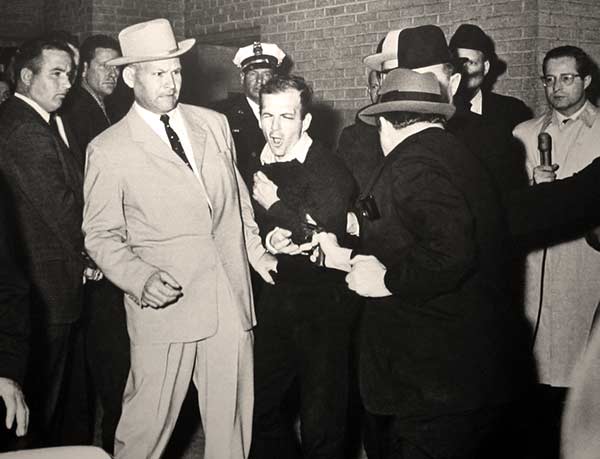
On November 24, 1963, Ruby fatally shot Lee Harvey Oswald, who was in police custody after being charged with the assassination of John F. Kennedy two days earlier.
A Dallas jury found Ruby guilty of murdering Oswald, and Ruby was sentenced to death. Later, Ruby appealed his conviction, had it overturned and was granted a new trial.
As the date for his new trial was being set, Ruby became ill and died in prison of a pulmonary embolism due to lung cancer.
Shortly before Oswald’s murder, Ruby walked to the nearby police headquarters, making his way to the basement via either the Main Street ramp or a stairway accessible from an alleyway.
While authorities were escorting Oswald through the basement to an armored car to take him to the nearby county jail, Ruby stepped out from a crowd of reporters and fired his revolver into Oswald’s abdomen, fatally wounding him.
The shooting was broadcast live nationally, and millions of television viewers witnessed it.
4 – Profumo-Christine Keeler Affair Rocks Britain
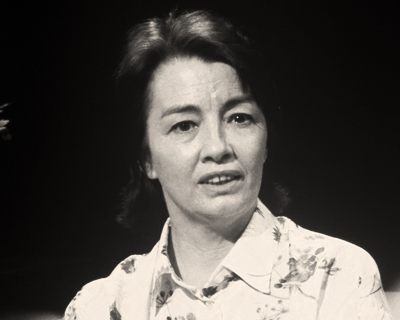
The Profumo affair was a British political scandal.
It originated with a brief sexual relationship in 1961 between John Profumo, the Secretary of State for War in Harold Macmillan’s government, and Christine Keeler, a 19-year-old model.
In March 1963, Profumo denied any impropriety in a statement to the House of Commons but was forced to admit the truth a few weeks later. He resigned from the government and from Parliament.
The repercussions of the affair severely damaged Macmillan’s self-confidence, and he resigned as prime minister on health grounds in October 1963.
His Conservative Party was marked by the scandal, which may have contributed to its defeat by Labour in the 1964 general election.
When the Profumo–Keeler affair was first revealed, interest was heightened by reports that Keeler may have also been involved with Captain Yevgeny Ivanov, a Soviet naval attaché, thereby creating a possible security risk.
Keeler knew both Profumo and Ivanov through her friendship with Stephen Ward, an osteopath, and socialite.
An inquiry into the affair by a senior judge, Lord Denning, indicated that there had been no breaches of security arising from the Ivanov connection
5 – First Million Copy Record Pre-Release – I Want to Hold Your Hand by The Beatles
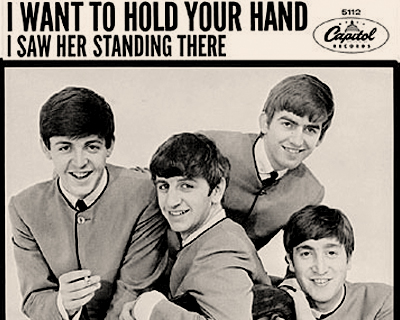
“I Want to Hold Your Hand” is a song by the English rock band the Beatles. Written by John Lennon and Paul McCartney, and recorded in October 1963, it was the first Beatles record to be made using four-track equipment.
Advance orders exceeded one million copies in the UK, it would have gone to the top of the British charts on its day of release (29 November 1963) had it not been blocked by the group’s first million-copy seller “She Loves You”.
Taking two weeks to dislodge its predecessor, “I Want to Hold Your Hand” stayed at number one for five weeks and remained in the UK top fifty for twenty-one weeks in total.
It was also the group’s first American number one and started the British invasion of the American music industry. It remained on the US charts for a total of fifteen weeks.
“I Want to Hold Your Hand” became the Beatles’ best-selling single worldwide.
6 – US President John Kennedy Gives his Famous “Ich bin ein Berliner” Speech & Visits his Ancestral Home in Ireland
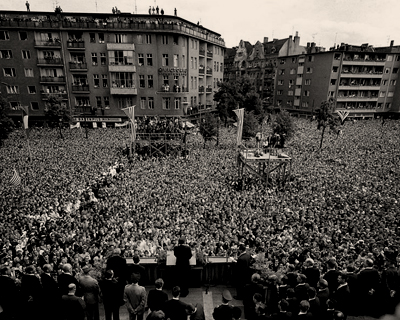
“Ich bin ein Berliner”, (“I am a Berliner”) is a quotation from a June 26, 1963, speech by U.S. President John F. Kennedy in West Berlin.
He was underlining the support of the United States for West Germany 22 months after Soviet-supported East Germany erected the Berlin Wall to prevent mass emigration to the West.
The message was aimed as much at the Soviets as it was at Berliners and was a clear statement of U.S. policy in the wake of the construction of the Berlin Wall.
The speech is considered one of Kennedy’s best, and a notable moment of the Cold War.
It was a great morale boost for West Berliners, who lived in an enclave deep inside East Germany and feared a possible East German occupation.
He spoke from a platform erected on the steps of Rathaus Schöneberg to an audience of 450,000.
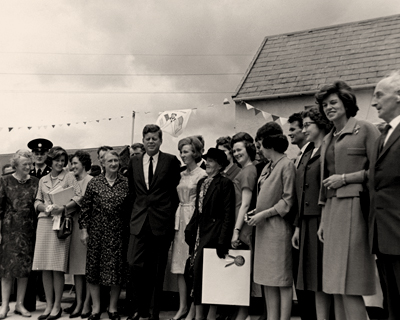
Kennedy then flew to Ireland that night, for a four-day visit to his ancestral home from June 26-29.
Kennedy accepted a grant of armorial bearings from the Chief Herald of Ireland and received honorary degrees from the National University of Ireland and Trinity College, Dublin.
He also visited the cottage at Dunganstown, near New Ross, County Wexford where his ancestors had lived before emigrating to America.
Kennedy also became the first foreign leader to address the Houses of the Oireachtas in Dublin.
7 – Buddhist Monk Burns Himself to Death in Protest Against the South Vietnamese Government
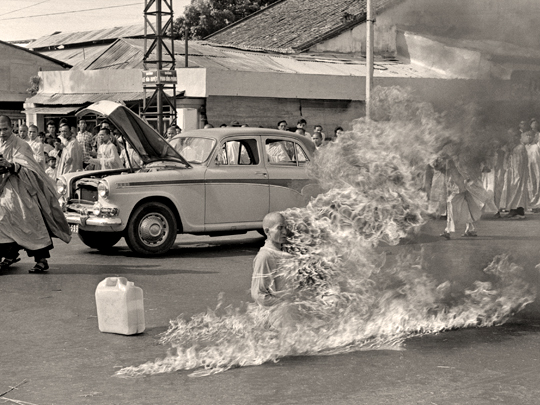
Thích Quảng Đức was a Vietnamese Buddhist monk who burned himself to death at a busy road intersection in Saigon on 11 June 1963.
He was protesting the persecution of Buddhists by the South Vietnamese government led by Ngô Đình Diệm.
Photographs of his self-immolation were widely circulated around the world, bringing attention to the policies of the Diệm government.
Journalist Malcolm Browne won a Pulitzer Prize for his photograph of the monk’s death.
Đức’s act increased international pressure on Diệm, leading him to announce reforms in an attempt to appease the Buddhists.
However, the promised reforms were never implemented, leading to further protests and unrest.
In reaction to the protests, Vietnamese Special Forces launched nationwide raids on Buddhist pagodas, inflicting widespread damage.
Eventually, a U.S.-backed Army coup toppled Diệm, who was assassinated on 2 November 1963.
